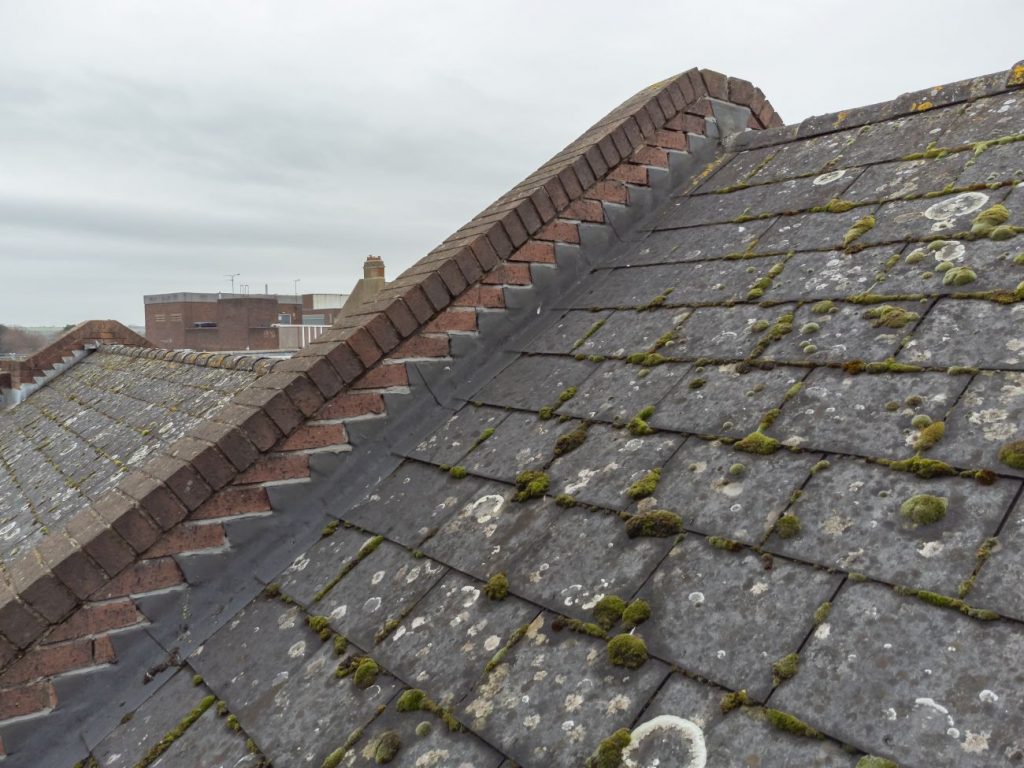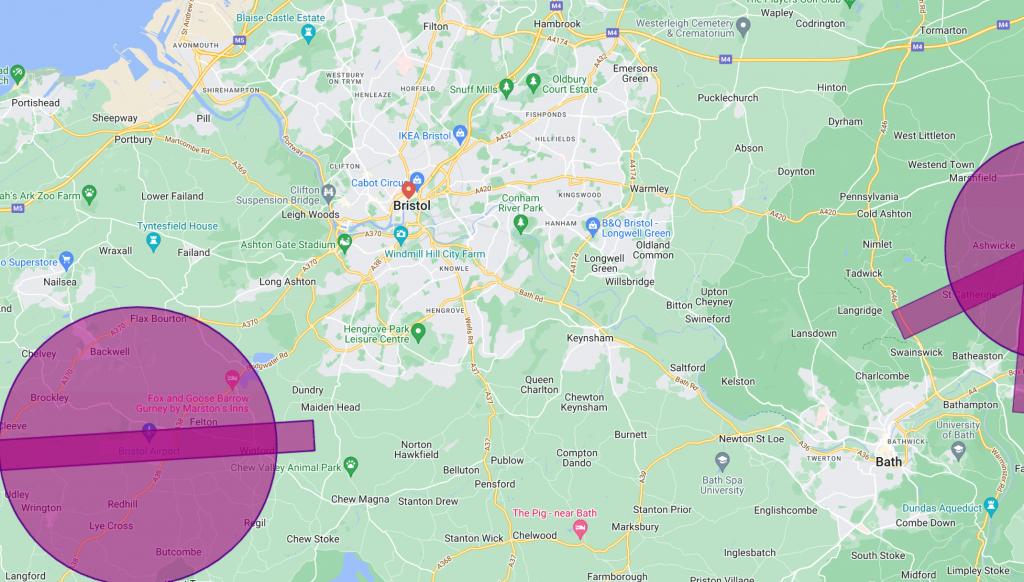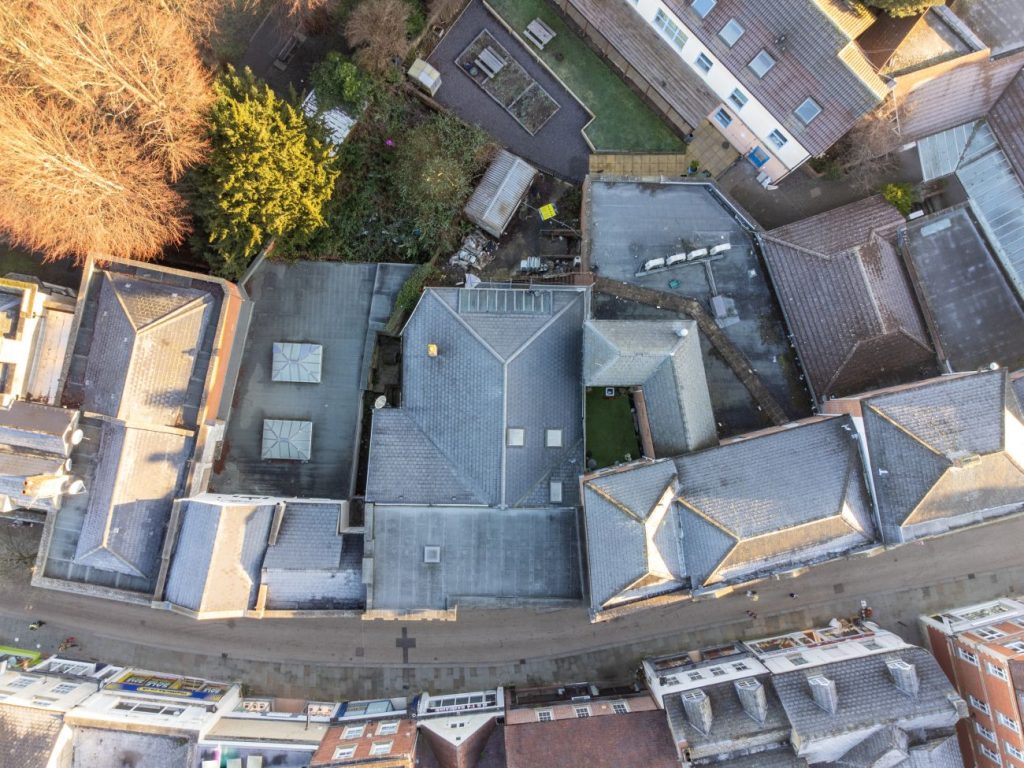Drone technology has made a significant impact on various industries, and the roofing and building surveying industries are no exception. Drone roof inspections have emerged as a revolutionary method of roof inspection that offers several advantages over traditional inspection methods. With their high-resolution cameras, drones can capture detailed images and videos of roofs that help identify issues that may be missed during a physical inspection.
Drone Roof Inspection Bristol
Bristol is a location that could significantly benefit from drone roof inspections, given its distinct weather conditions and unique architectural designs. In this post, we’ll explore the benefits of drone roof inspections and why Bristol homeowners should consider this innovative method to keep their roofs in top condition.
Why Choose Drone Roof Inspections?
Roof inspections are an essential part of maintaining the structural integrity of a building. Traditional inspection methods involve a roofer or building surveyor climbing up a ladder to perform a visual inspection of the roof or using binoculars on the kerbside. However, this method is time-consuming, expensive, can be dangerous for the roofer/surveyor and can lead to missed areas.
Drones, on the other hand, offer several advantages over traditional methods. The primary benefit of using drones for roof inspections is their ability to capture high-resolution images and videos of the entire roof. This includes all roof coverings, chimney stacks, skylights, hidden valleys, and leadwork. This level of detail helps identify issues that may not be visible to the naked eye, such as cracks, leaks, and other damage.
In addition to their ability to capture detailed images, drones are also often more efficient and cost-effective than traditional inspection methods. A drone can inspect a roof in a fraction of the time it would take a roofer or surveyor to perform a physical inspection, which ultimately saves homeowners money on inspection costs. Furthermore, drones can quickly and easily access hard-to-reach areas that would require scaffolding or other equipment for traditional inspection methods.
Overall, the benefits of using drones for roof inspections are numerous, making them an attractive option for homeowners in Bristol who want a more efficient and cost-effective way to keep their roofs in top condition.

What to Expect During a Drone Roof Inspection
A drone roof inspection typically involves a licensed drone pilot. The pilot will fly the drone over the roof, capturing high-resolution images and videos of the entire roof. The drone company can usually compile a report at additional cost or pass the images on to your building surveyor to identify any issues or areas of concern.
During the inspection, the pilot will first perform a pre-flight inspection of the drone to ensure it is in good working order. The pilot will then launch the drone and fly it over the roof capturing images and videos.
The pilot will use the drone’s high-resolution camera to capture images and videos of the entire roof. These images and videos can be used to identify various issues, such as cracks, leaks, damaged tiles, or other problems.
Once the inspection is complete, the drone company or building surveyor will review the data collected during the inspection to determine if any repairs or maintenance are needed. The data collected during a drone roof inspection can also be used to create a detailed report that outlines the current condition of the roof and any recommended repairs or maintenance.
Overall, a drone roof inspection is a quick and efficient way to assess the condition of a roof, and it offers an unprecedented level of detail compared to traditional inspection methods. With high-resolution images and videos, a drone roof inspection can identify issues that may not be visible during a physical inspection.
Benefits of using drones for roof inspections in Bristol
Bristol is known for its unique weather conditions. Although the city is partially sheltered by the Mendip Hills, it is exposed to the Severn Estuary and the Bristol Channel. High winds, storms, and heavy rain can cause damage to the roof and potentially cause leaks. Additionally, Bristol has many homes with unique architectural designs, including tall town houses, steep roofs, and dormers, which can make it challenging to inspect hard-to-reach areas without a drone.
Drones can help overcome these challenges by providing a safe and efficient way to inspect roofs in Bristol. With their high-resolution cameras, drones can capture detailed images and videos of the roof. This level of detail helps identify any damage or potential issues, allowing homeowners to address them promptly.
Additionally, drones are cost-effective, as they can inspect hard-to-reach areas without the need for scaffolding or other equipment, which can save homeowners money on access equipment costs. In summary, drones offer a safe, efficient, and cost-effective way to inspect roofs in Bristol, making them an ideal solution for homeowners looking to keep their roofs in top condition.
Regulations and safety considerations
Drone flights in Bristol are governed by Civil Aviation Authority (CAA) regulations, and there are several rules and safety considerations that drone pilots and homeowners should be aware of when conducting a drone roof inspection.
First and foremost, drone pilots must obtain public liability insurance before flying a drone for commercial purposes, including roof inspections. Additionally, drone flights must follow CAA guidelines, including flying below 400 feet, maintaining a visual line of sight with the drone, and avoiding flying in restricted areas without permission.
Most of Bristol comes under Class G airspace, which is safe for licensed and insured drone operators to fly in. More information on airspace restrictions can be found at No Fly Drones

It is a courtesy for homeowners to communicate with their neighbors and let them know about the planned drone roof inspection to avoid any confusion or misunderstandings.
Drone pilots should also take safety precautions to ensure a safe and efficient inspection. It is recommended that pilots perform a pre-flight inspection of the drone to ensure it is in good working order. During the inspection, pilots should avoid flying the drone in high winds or other challenging weather conditions that could make it difficult to control.
In summary, drone pilots should follow all CAA regulations and safety considerations to ensure a safe and efficient drone roof inspection. By following these guidelines, homeowners in Bristol can benefit from the detailed images and videos captured by drones while ensuring the safety of all parties involved.
Conclusion
Drones have revolutionised the way we inspect roofs, and Bristol homeowners can benefit from the many advantages of using drone roof inspections. Drones offer a safe, efficient, and cost-effective way to inspect roofs, and can provide unprecedented levels of detail to identify issues that may not be visible during a physical inspection.
By using drones for roof inspections, homeowners can save time and money by quickly identifying any damage or potential issues before they become more significant and costly. Drones can also inspect hard-to-reach areas without the need for scaffolding or other equipment, which can save homeowners money on inspection costs.
We encourage readers in Bristol to consider using drone inspections for their own roofs. By using this innovative method, homeowners can ensure their roofs are in top condition and avoid costly repairs down the line. Overall, drone roof inspections are a valuable tool for homeowners looking to maintain the structural integrity of their homes and keep their roofs in excellent condition.
If you want to find out more or book a drone roof inspection in Bristol please contact us and we’ll be happy to talk through the options.

